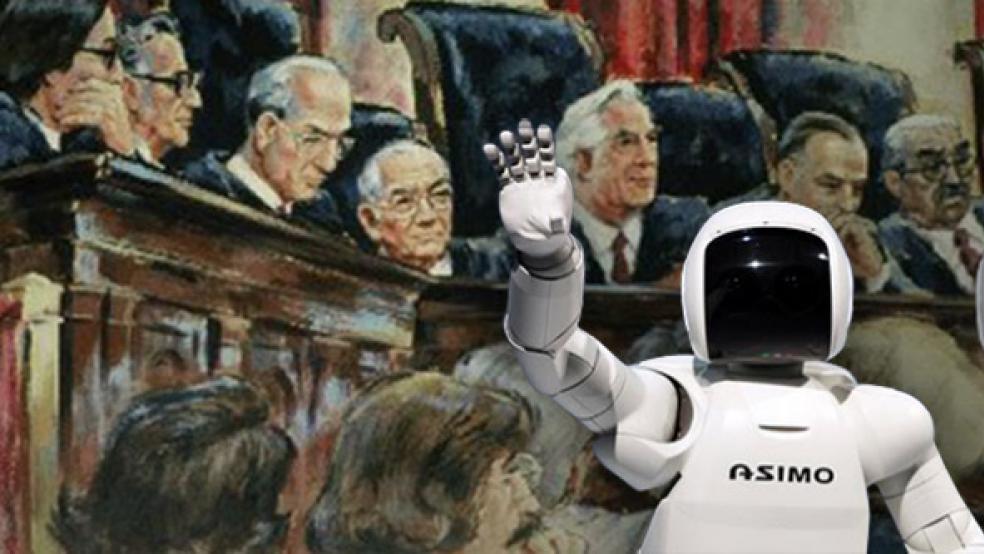The Associated Press, via the Washington Post, has a 3-part series on one of the biggest questions business and society will face in coming years.
Are we prepared for a world where 50 to 75 percent of workers are unemployed?
It seems like a ridiculous question, but it's something economists and technologists say we seriously need to think about. It's just math.
Rice University computer science professor Moshe Vardi says that in 25 years "driving [done] by people will look quaint; it will look like a horse and buggy."
RELATED: Why Robots Are Worse for the Economy Than You Think
So there go many of the approximately 4 million driving jobs out there. Same for sanitation, and those are just a couple examples of how physical jobs will be replaced.
Smarter computers mean that any mid-paying job that involves a routine: data entry, number crunching, operations, and so on, will be replaced as well, which will remove a big piece of the approximately 7 million business and financial operations jobs that exist in the United States.
When you add all of that up, some think 50 percent unemployment is optimistic. Software entrepreneur Martin Ford predicts something closer to 75 percent unemployment by the end of the century. "The vast majority of people do routine work," Ford says. "The human economy has always demanded routine work." And eventually, that work won't be done by humans.
Andrew McAfee and Eric Brynjolffson argue that the trend is rapidly accelerating. What's left are extremely specialized new digital jobs, like people who create apps, and the jobs that robots can't yet replace, like restaurant busboy and other high-touch service jobs.
There aren't enough of the former jobs, no matter how we're educating people. Our new industries simply aren't labor-intensive. And those lower end jobs are low paying, and may also end up being replaced as robots get better at specialized tasks, So income inequality will rise as unemployment increases, further slowing growth.
It's a doomsday scenario that has nothing to do with natural disasters or global warming, but with the fact that technology is changing too rapidly for our economy or society to catch up.
At the very height of our recent recession, we had unemployment of around 10 percent. The economy and safety net could barely deal with it. It helped rapidly grow the debt, and we've yet to deal with that or other lasting consequences. A 10 percent unemployment rate is a mere fifth of what some experts predict we'll see in the future, and we won't be able to count on changing business cycles to lift us out.
If all of the profit from the efficiency and productivity gains from this new technology go towards a small group of people, and we don't change our business or social model, we're going to be left with an increasingly massive pool of people who just don't fit in the economy.
By Max Nisen, Business Insider
More from Business Insider:
The Growing Skills Gap, Explained In Three Charts
This Is Where Google Keeps Your Email And YouTube Videos
Knowing A Lot Doesn't Have Much To Do With Success
The Best Way To Keep Employees From Going Into Survival Mode
Colleges Are Going To Start Going Out Of Business




